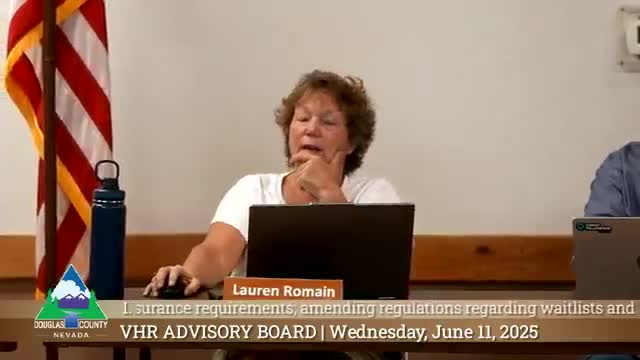Article not found
This article is no longer available. But don't worry—we've gathered other articles that discuss the same topic.
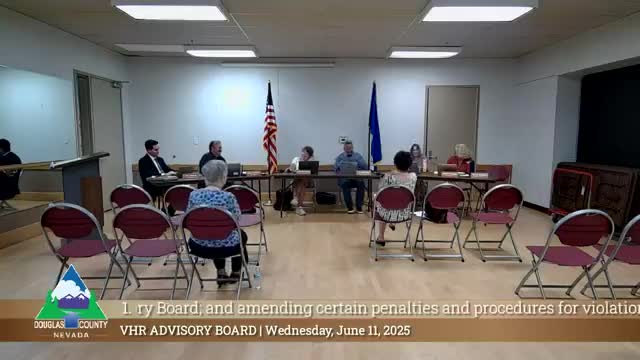
Members split on advisory-board composition; some favor residents from areas where VHRs are permitted
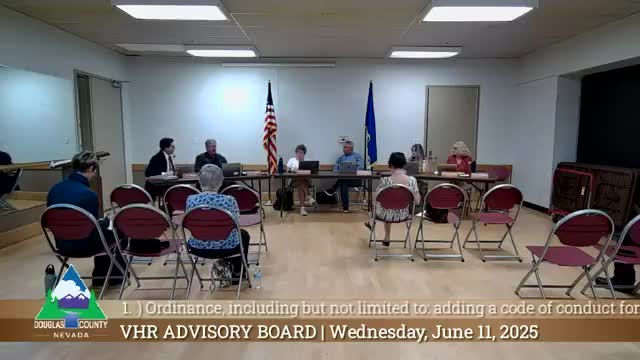
Board clarifies North of Cave Rock rental rule: residents may rent to other residents in permitted communities
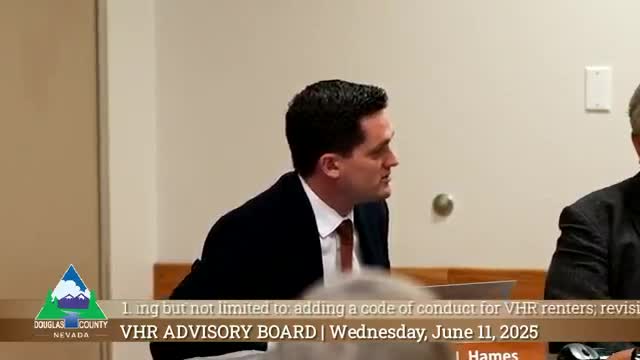
Advisory board weighs renewal grace period and proposed minimum-use rule to curb permit hoarding
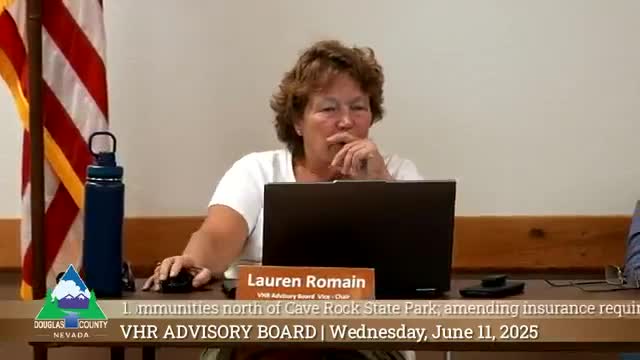
Douglas County staff proposes raising VHR liability insurance to $1 million and adding notice requirement
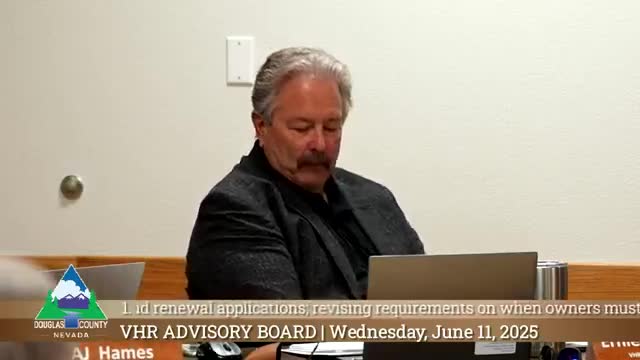
Board backs director discretion to require property managers, debates lowering threshold for remote units
